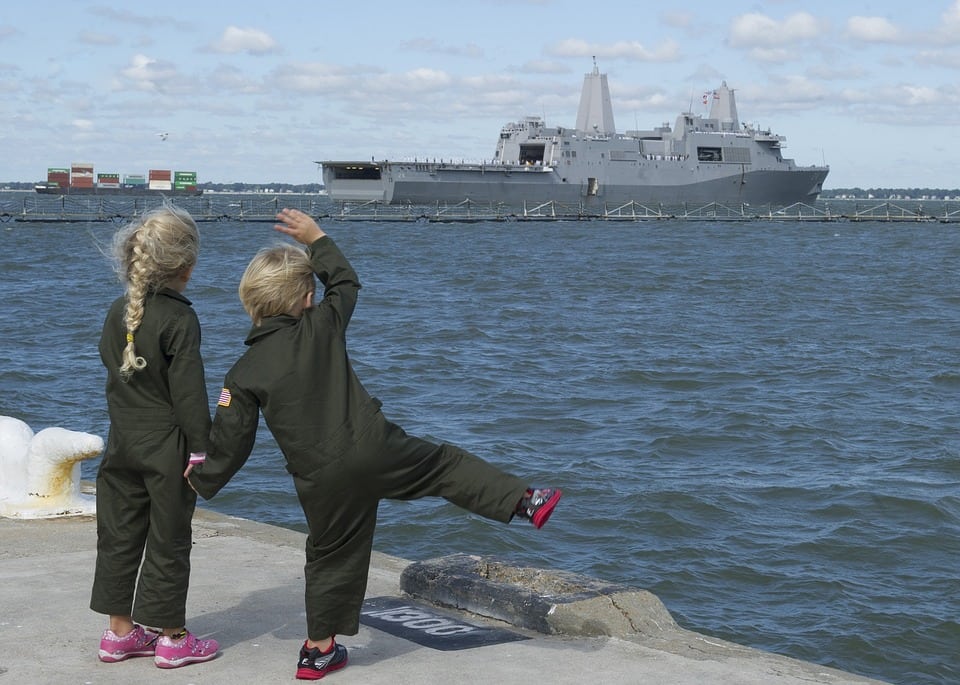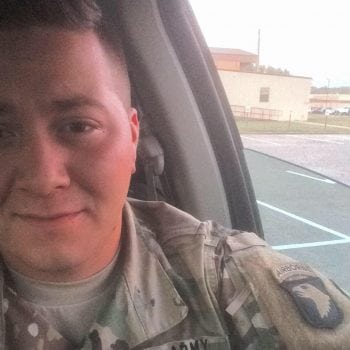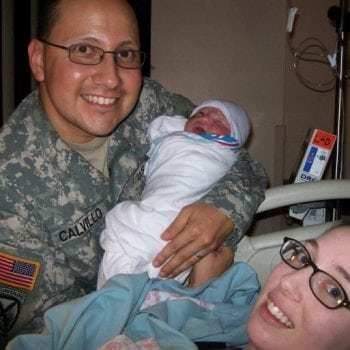Virginia VA Home Loans:
Eligibility, Getting Started and FAQs
At 1st United Mortgage, our VA home loan team helps veterans, active military members and their families fulfill the American dream: buying their own home.
With the VA Home Loan Program, qualified applicants can purchase a home with no down payment and almost no out of pockets expenses. The VA Home Loan Program provides low interest rates and low credit score options for home buyers. Our team is highly trained and ready to help with eligibility, requirements and Virginia’s own state specific benefits. We want the mortgage process to be as simple and stress-free as possible.
Many clients are surprised to discover that a 620 credit score is not a requirement with the VA home loan program. At 1st United Mortgage, we can approve loans with credit scores as low as 620. We also offer a credit score rehabilitation program for clients who do not yet qualify.

VA Mortgage Options in Virginia

The VA loan is not offered to everyone; it is only available as an earned benefit for one’s military service. See if you qualify by clicking here.
We do offer additional loan options for those ineligible for a VA loan. These include FHA as well as conventional loan options.
Military in Virginia
The military has always had a strong presence Virginia thanks to the 27 military bases there. The state also provides many perks and benefits to military members and their families. With a large veteran population and robust economy, Virginia is one of the best states for retired and veteran military to live.
Here is a list of some the communities we often serve with our VA loans. Click the city name below to learn about the area.
Virginia Beach
Norfolk
Chesapeake
Richmond
Newport News
Alexandria
Arlington
Roanoke
Virginia VA Loan FAQs
Click the links below to quickly jump to a section:
Eligibility
Qualification
Costs
Guidelines
Basics
Refinancing
Eligibility
VA Loan Eligibility
What is the VA Loan entitlement?
Am I eligible as a spouse of a deceased veteran?
VA loans are available to some non-military personnel. This includes both unmarried and remarried spouses. For example, an unmarried spouse whose veteran died on active duty or because of a disability connected to his or her service is eligible for VA home loan benefits.
Surviving spouses who obtained a VA loan with the veteran before his or her death can also obtain a VA Interest Rate Reduction Refinance Loan, better known as a VA Streamline refinance. Surviving spouses who remarried upon or after turning age 57 and on or after December 16, 2003, may be eligible for a VA home loan. Surviving spouses who remarried before that date are no longer eligible to participate.
The spouse of an active duty member who is listed as missing in action (MIA) or a prisoner of war (POW) for at least 90 days is eligible for one-time use of the VA home loan benefit.
How can I get my Certificate of Eligibility?
The Certificate of Eligibility, or COE, certifies what entitlement (if any) a military member has for a VA home loan. It’s a formal document from the VA and is a crucial step in the VA home loan process. It is the only verifiable way to determine a veteran’s eligibility and entitlement and without a COE, prospective borrowers cannot complete the lending process. Veterans can obtain one directly from the VA, though this typically takes a couple weeks to process. With 1st United, we use an automated system to provide your Certificate of Eligibility in minutes.
Who is eligible for the VA Loan?
There are basic eligibility requirements for veterans and service members, along with members of the Reserves, the National Guard and surviving spouses.
You May Be Eligible for a VA Loan If Any One of the Following are True:
• You served 181 days during peacetime in Active Duty
• You served 90 days during war time in Active Duty
• You served 6 years or more with the Reserves or National Guard
• You are the spouse of a service member who died in the line of duty or because of a service-connected disability.
Verification of a veteran’s eligibility for a VA loan is done with a Certificate of Eligibility, or COE. These formal documents can be provided directly by the VA, though this process may take a few weeks. You may also obtain a COE from an automated system via a lender like 1st United Home Loans. This process takes mere minutes.
It is important to remember not everyone eligible for a VA loan will secure one. Prospective borrowers will need to meet the credit and underwriting standards set by both the lender and the VA.
When purchasing a home, does the VA Loan allow for cash back options?
What is the difference between eligibility and prequalification?
How do basic and bonus entitlements work?
How do I restore my entitlement once I pay off my previous VA Loan?
Once a VA loan is paid, veterans can seek a full restoration of their entitlement. This happens most often when a borrower sells their home and uses the proceeds to pay off an original mortgage. This means the veteran’s previously used entitlement is no longer tied up in the original home. At this point, veterans must complete a VA form and submit that document to the agency.
What is 2nd Tier Entitlement?
Can I use the VA Loan for a second home or rental properties?
VA Loan Qualification
Who sets the VA Loan guidelines, the VA or my lender?
The VA sets broad requirements and guidelines for military borrowers and has no income requirements or credit requirements. To participate in the VA Loan Guaranty program, borrowers must demonstrate that they are a satisfactory credit risk. It is VA lenders who ultimately issue the loans though, and they have their own unique requirements for credit scores. Prospective borrowers must understand they have to satisfy both the VA and an approved lender’s requirements to secure home financing.
If I have bad credit, can I still get a VA Loan?
Can someone else sign on the loan with me?
What income can I use to qualify for a VA Loan?
Prospective borrowers must prove to VA approved lenders that hey have enough consistent income to meet monthly expenses, including a new mortgage payment. Lenders prefer a minimum of two years worth of stable employment, plus income from the same employer and job type. Reliable, documented income can be included from a host of sources, including:
• Base pay & allowances
• Non-military employment
• Retirement income
• Self-Employment
• Commissions
• Rental income
• A spouse’s income
• Alimony/child care
Income from overtime work, part-time jobs, second jobs and bonuses can be used if veterans show that same two-year period of stability. Self-employed veterans or active duty members who make a living with building trades, doing seasonal work or working mostly on commission have a few extra paperwork hurdles. In these cases, tax returns for the previous two years will be essential in verifying income.
How long do I have to wait after bankruptcy to get a VA Loan?
Rate And Loan Costs
What fees should I expect to pay for my VA Loan?
What is the VA Funding Fee, and how do I calculate it?
How are rates for VA Loans determined?
Does my credit score affect my VA Loan rate?
VA Loan Guidelines
Can I borrow more than the value of my home with a VA loan?
Can I have more than one VA loan at a time?
How complicated is VA financing?
When purchasing a home, does the VA Loan allow for cash back options?
What is the maximum VA Home Loan?
Can I borrow extra money to make home improvements?
VA Loan Basics
How do I get prequalified and what happens afterward?
What if I don’t have copies of my discharge paperwork?
Can I pay off a VA Loan early?
When is the VA Loan not my best option?
VA Refinancing
Can the VA Loan help me lower my monthly bills?
What types of homes can I buy with a VA Loan?
The vast majority of military buyers use their VA loan to purchase or refinance an existing single-family home. But veterans interested in purchasing a condo or building a home from the ground up can also utilize a VA loan. You can use a VA loan:
- To purchase a residence that’s owned and occupied by the veteran.
- To refinance an existing VA-guaranteed or direct loan in order to lower the current interest rate.
- To refinance in order to take out cash.
- To repair, alter or improve a residence owned by a veteran.
- To simultaneously purchase and improve a home
- To make energy-efficiency improvements in conjunction with a VA purchase or refinance loan.
- To purchase up to four one-family residential units in a condo development approved by the VA. One of those four units must be used as the borrower’s primary residence.
- To purchase a farm residence to be owned and occupied by the veteran. The property cannot be a working farm or an income-producing property.
What Our Clients Are Saying
Zachary Burrows
Carmella Teeter
Anthony Calvillio
Ready To Start Today?
Get started immediately with our quick quote form or complete the full online application & get pre-qualified now.



